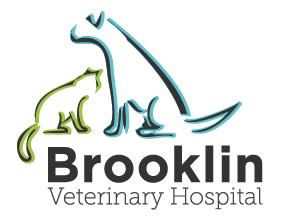Library
-
This handout discusses muscular dystrophy (MD), primarily in dogs. The cause of the disease is a defect in the proteins found in muscle cells. It is often an inherited disease, usually affecting young dogs. Clinical signs (usually starting as muscle weakness) and diagnosis of the condition are outlined. There is no effective treatment for the condition.
-
Mushroom toxicity can run the gamut from irritating illness to severe toxicity to death. The species of mushroom and amount ingested determine the severity of the toxicity. Since mushrooms are difficult to identify, it is best to discourage your pet from eating any mushrooms growing in the wild. In the event of mushroom ingestion, prompt treatment is critical to successful treatment. Pet owners need to be alert to the possibility of mushroom toxicity and work to eliminate their pet’s access to mushrooms.
-
In an emergency situation, a dog that can easily wear a muzzle can be easily and safely handled. Dogs may show aggressive behavior when frightened or in pain and having a muzzle ensures that no one will be injured and that your dog will be able to be taken to the hospital. Muzzles can also be helpful as part of treatment for behavioral conditions such as fear-based aggression.
-
Picky eaters are often created by their humans offering too much variety of food. Cats can become picky eaters for medical reasons that need to be determined by your veterinarian. It is safe for an otherwise healthy cat to not eat for a few days; beyond this however, they can develop a possibly fatal condition called hepatic lipidosis. To decrease pickiness, having food available for only 30 minutes4-5 times a day can be beneficial. Human food should not be used as a diet as it will lead to nutrient deficiencies. Certain foods are okay to mix with cat food to make them more appealing but check with veterinarian before including these in your dog’s diet. Many cats work on their own schedule and prefer to eat very small amounts frequently (grazing).
-
Picky eaters are often created by their humans offering too much variety of food. It is safe for an otherwise healthy dog to not eat for up to a week. To decrease pickiness, having food available for only 15-30 minutes 2-3 times a day can be beneficial. Human food should not be used as a diet as it will lead to nutrient deficiencies. Certain foods are okay to mix with dog food to make them more appealing but check with your veterinarian before including these in your dog’s diet. Many dogs are not programmed to eat every day.
-
Myasthenia gravis is a disease in which there is a malfunction in the transmission of signals between the nerves and muscles. Dogs with myasthenia gravis exhibit extreme weakness and excessive fatigue. There are two forms: inherited and acquired. Anti-acetylcholinesterase medication and immunosuppressive therapy will likely be required for the life of the dog.
-
Mycophenolate is an immune suppressing medication given by mouth or as an injection and is mainly used off-label to treat autoimmune disease in dogs. Common side effects include gastrointestinal upset and bone marrow suppression. This medication should not be used in pets that are allergic to mycophenolate, are pregnant, or nursing. It should be used with caution in pets with liver or kidney disease. If a negative reaction occurs, call your veterinary office.
-
Mynah birds are best known for their ability to talk and mimic sounds. They are lively, social birds and have wonderfully outgoing personalities. A young, hand-raised mynah will be easier to tame and train compared to a wild, colony, or parent-raised bird. As with all pets, mynah birds require regular, routine veterinary checkups.
-
When a farrier shoes a horse, accurate placement of each nail through the insensitive epidermal laminae of the hoof is essential. The nail must penetrate deep enough to hold firm, but not deep enough to penetrate the sensitive laminae of the hoof.
-
Naloxone (brand name Narcan®) is a drug used to reverse the effects of opioids. It is used primarily under direct supervision of a veterinarian. It is used off-label in veterinary medicine. Naloxone comes in nasal spray and injectable forms.



